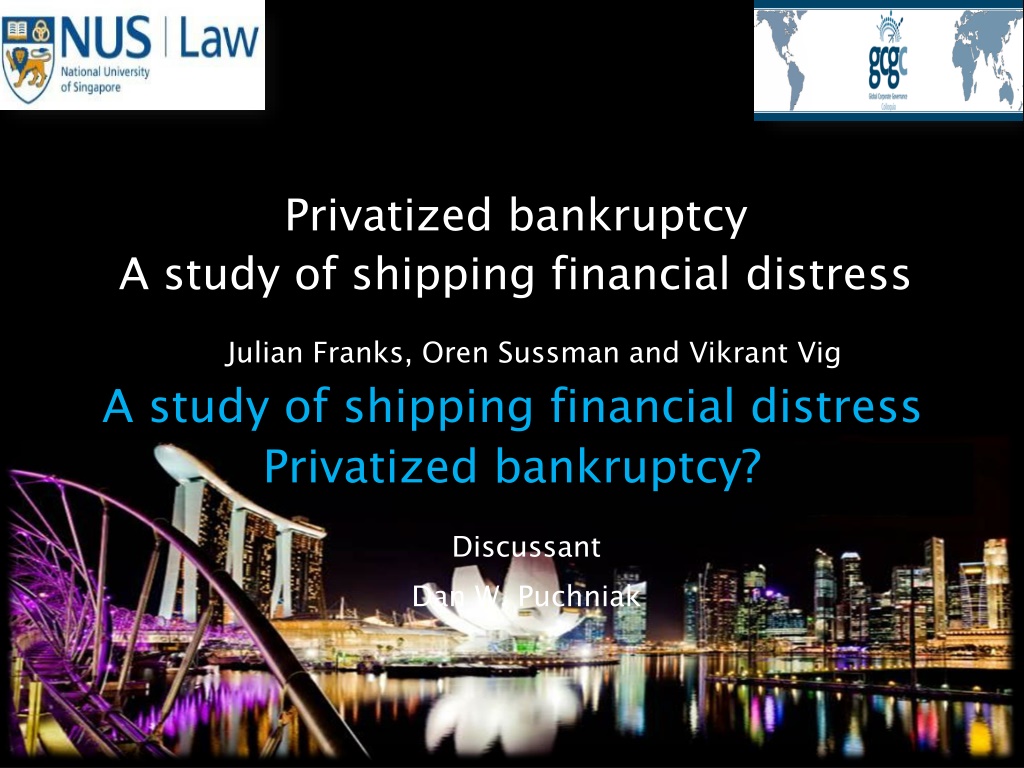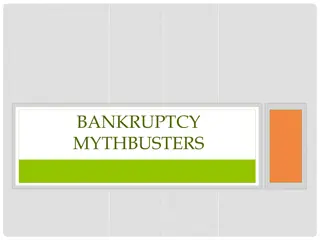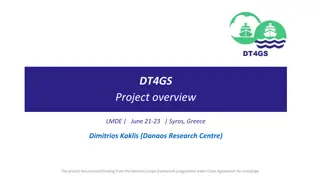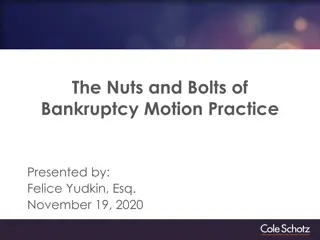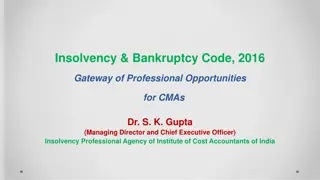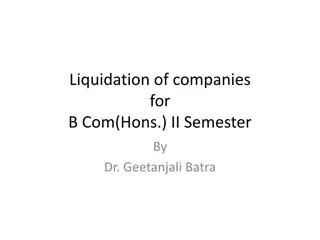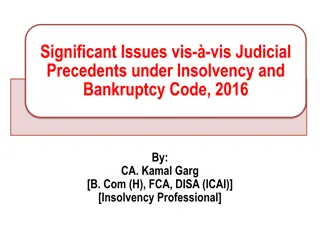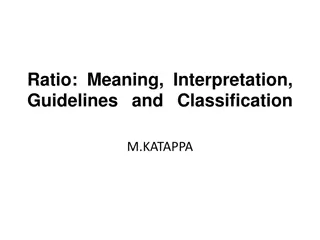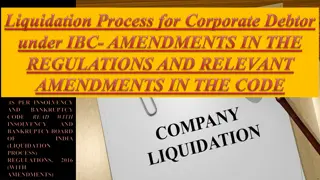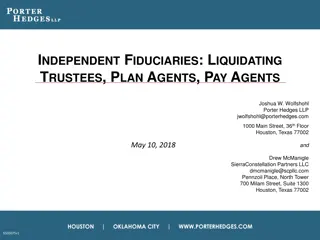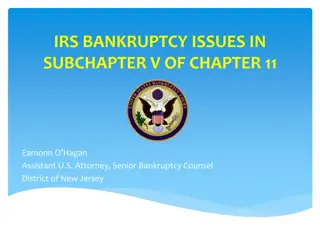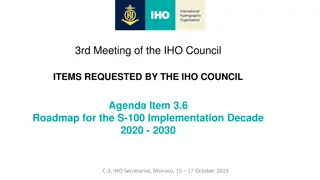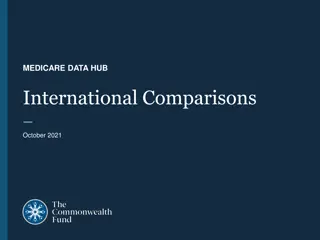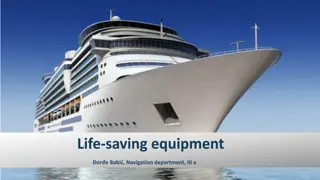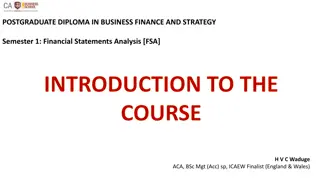Privatized Bankruptcy in Shipping: Financial Distress Resolution and Industry Comparisons" (75 characters)
This study explores how financial distress in the shipping industry is managed through private institutional arrangements, minimizing economic costs. It compares unique contractual innovations in shipping to traditional corporate bankruptcy processes, highlighting shipping's outlier status and the effectiveness of avoiding court intervention in resolving distress. The analysis presents a nuanced view of resolving distress and its implications across industries. (371 characters)
- Privatized Bankruptcy
- Shipping Industry
- Financial Distress
- Contractual Innovations
- Industry Comparison
Download Presentation

Please find below an Image/Link to download the presentation.
The content on the website is provided AS IS for your information and personal use only. It may not be sold, licensed, or shared on other websites without obtaining consent from the author. Download presentation by click this link. If you encounter any issues during the download, it is possible that the publisher has removed the file from their server.
E N D
Presentation Transcript
Privatized bankruptcy A study of shipping financial distress Julian Franks, Oren Sussman and Vikrant Vig A study of shipping financial distress Privatized bankruptcy? Discussant Dan W. Puchniak
Thank You Thank You
Two Convincing Arguments For Shipping (1) Financial distress is effectively resolved by way of contract and other private institutional arrangements in shipping (2) The economic cost of financial distress is low in shipping
Key Question The question remains to what extent might these results extend to other industries?
Shipping Shipping May Be An Outlier May Be An Outlier
One Ship (Asset) Companies Avoid Much of the Complexity of Bankruptcy
Contractual Innovations Are Innovations For Shipping Not Common Corporate Bankruptcy (1) The Maritime Lien makes labour senior to capital for commercial considerations in shipping To the best of our knowledge, shipping is the only industry where labour is senior to capital for commercial considerations. It is an interesting twist on theories of control, which predict that the party in control should be junior and hold a residual claim (2) The Double Mortgage reduces transaction costs when the debtor defaults in shipping
No Need For Court Intervention to Mitigate the Risk of a Fire Sale Discount in Shipping Shipping has advantages in so far as there is a large market for second hand ships and the brokers who sell the ships are able to market the vessels to a global market
In shipping the Main Economic Cost of Financial Distress Originates with Dysfunctional Debtors Rather than Poorly Coordinated Creditors
Perhaps There is a Small Community of Repeat Players in Large Vessel Shipping
Alternative Story Regulatory Competition The shipping industry with its multitude of jurisdictions might be expected to provide for disorderly defaults Ports, like flags, compete on quality of service, regulation, institutions and courts
Delaware of the Sea? Clear and effective regimes for dealing with the liquidation process Arrest specialized ports Other High Volume Port Jurisdictions Gibraltar China Singapore USA Hong Kong Japan Netherlands Germany South Africa South Korea UK Australia
Delaware of the Sea? Clear and effective regime for dealing with registering property rights
The Importance of the Shadow of the Courts Creditors of shipping companies rely on maritime courts to arrest ships, in the event of default, and auction them in a timely and cost effective manner. Thus, there is an important role of enforcement for the courts , which serves as the linchpin for the entire maritime bankruptcy system
Questions (1) How are unsecured creditors protected? (2) Was there a greater fire sale discount during periods of recession? (3) What impact does the role of the Admiralty Court in the UK (and other jurisdictions) have in determining the sale price of arrested ships (i.e., does the court interfere in the private bargain struck between creditors and third party buyers in determining a fair price)?
Thank You Thank You
